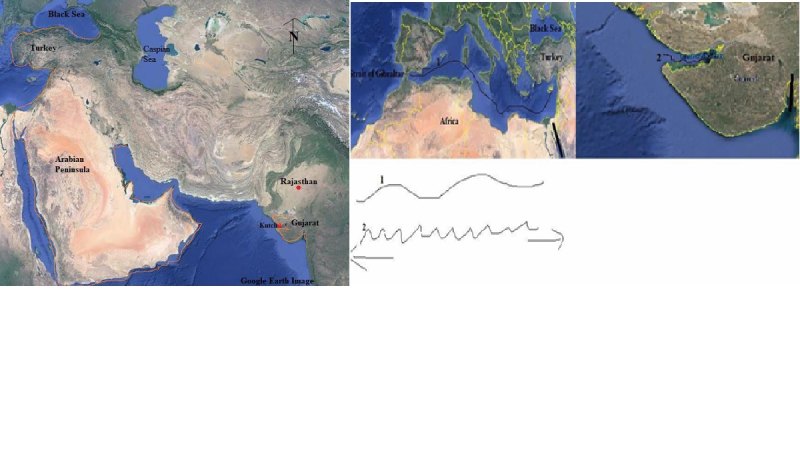
Dana Peb, Science Coup – A groundbreaking study published in the International Journal of Earth Science and Geology reveals new insights into the Tethys Sea’s influence on the formation and evolution of surrounding landmasses. This study deepens our understanding of the region’s tectonic history, focusing on its effects on continents like India.
The research uses an analytical approach to examine the geologic signatures of oceanic and continental terrains, specifically around Turkey. It explores tectonic movements, landmass breakups, and amalgamations over millions of years, offering vital insights into Earth’s tectonic processes.
Key Findings:
- The study suggests that the geographic boundaries of Turkey and Gujarat (India) share similar tectonic patterns, pointing to a shared history shaped by the Tethys Sea.
- Connections are drawn between the present-day configurations of the African peninsula, the Mediterranean, and regions that were once part of the Tethys Sea, indicating potential future landmass expansion and divergence.
- The research investigates the tectonic evolution of the Anatolides-Taurides, Pontides, and Arabian platform, with a focus on the breakup of Gondwana and the northward movement of India and Africa across the Tethys Sea.
Geologist Zarin Ali Comments on the Finding:
“If we look at the configuration of the African peninsula, with the Mediterranean Sea to the north, we see a trend suggesting that this part of the land is mature and unlikely to expand much. In contrast, Gujarat (India) shows a tighter trend, suggesting greater expansion potential. The configuration of Turkey mirrors that of Gujarat, possibly indicating that regions like Gujarat and Rajasthan in India could be separated by a sea in the future, much like the expansion of the Arabian Peninsula.”
The study suggests the Tethys Sea may have existed in phases throughout Earth’s history, rising and falling with rifting and collision events. This could offer valuable clues on whether the Tethys Sea may resurface, affecting the western margins of continents like India and Europe.
Additionally, the study emphasizes the importance of seismic studies, fossil analysis, and structural viewpoints in understanding landmass evolution and predicting future tectonic movements.
About the Study:
This study provides significant contributions to geoscience, offering new insights into the tectonic processes that have shaped Earth’s landmasses.
For more information, visit: DOI: 10.18689/ijeg-1000111.
About The Science Nexus:
This press release was originally shared via The Science Nexus.
Media Contact:
Science Coup
Journalist: Dana Peb
Email: danapeb@sciencecoup.com
Disclaimer: The views, suggestions, and opinions expressed here are the sole responsibility of the experts. No journalist was involved in the writing and production of this article.

